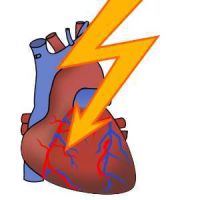A new technology, developed by Antonio Aguilar, and patented by the Galway Hospital in Ireland, is being used to predict cardiac events in people at risk of sudden cardiac death.
The cardiologists at the hospital used the technology in 2013 to diagnose and test its accuracy. They are now in the process of prototyping and marketing the software.
The researcher, Antonio Aguilar went to visit family in Ireland and to learn English. He then stayed on to complete an engineering degree in electronics. Around four months ago, he established his own company of medical software Healthformics Ltd. with the support of the Irish government. His goal is to develop technology in Ireland, try the software in several hospitals here and implement the software in Mexico and sell it to the rest of Latin America.
His PhD research was on: Method to diagnose patients at high risk of sudden cardiac death. His goal as he explains it was "to focus on sudden cardiac death because it is a condition that kills many people and is very difficult to predict."
Aguilar obtained a scholarship in a research institute of Galway and began to develop an algorithm that by testing the patient makes an electrocardiogram and records 15 minutes of the patient's heartbeat. The algorithm then processes this information and analyses it through a statistical model to determine if the patient is at risk of arrhythmia.
Aguilar also obtained a scholarship to do masters in Stockholm and was accepted at the Royal Institute of Technology in Sweden. He obtained his masters during two years in microelectronics and focused on developing microprocessors. He then returned to Galway and implemented wireless networks in the hospital of Galway. He developed an application to review patient's records electronically.
Aguilar is also a member of the Network of Mexican Talent Abroad, Chapter Ireland. He used a database of 400 patients to prove the algorithm and to diagnose patients. He explains that patients suffering an arrhythmia have certain patterns that can be detected. In addition, the variability in their heartbeat is lower. Thus, with the algorithm, it is possible to predict whether the patient will have arrhythmia hours before it happens.
Source: Investigación y Desarrollo
Image Credit: Investigación y Desarrollo



























